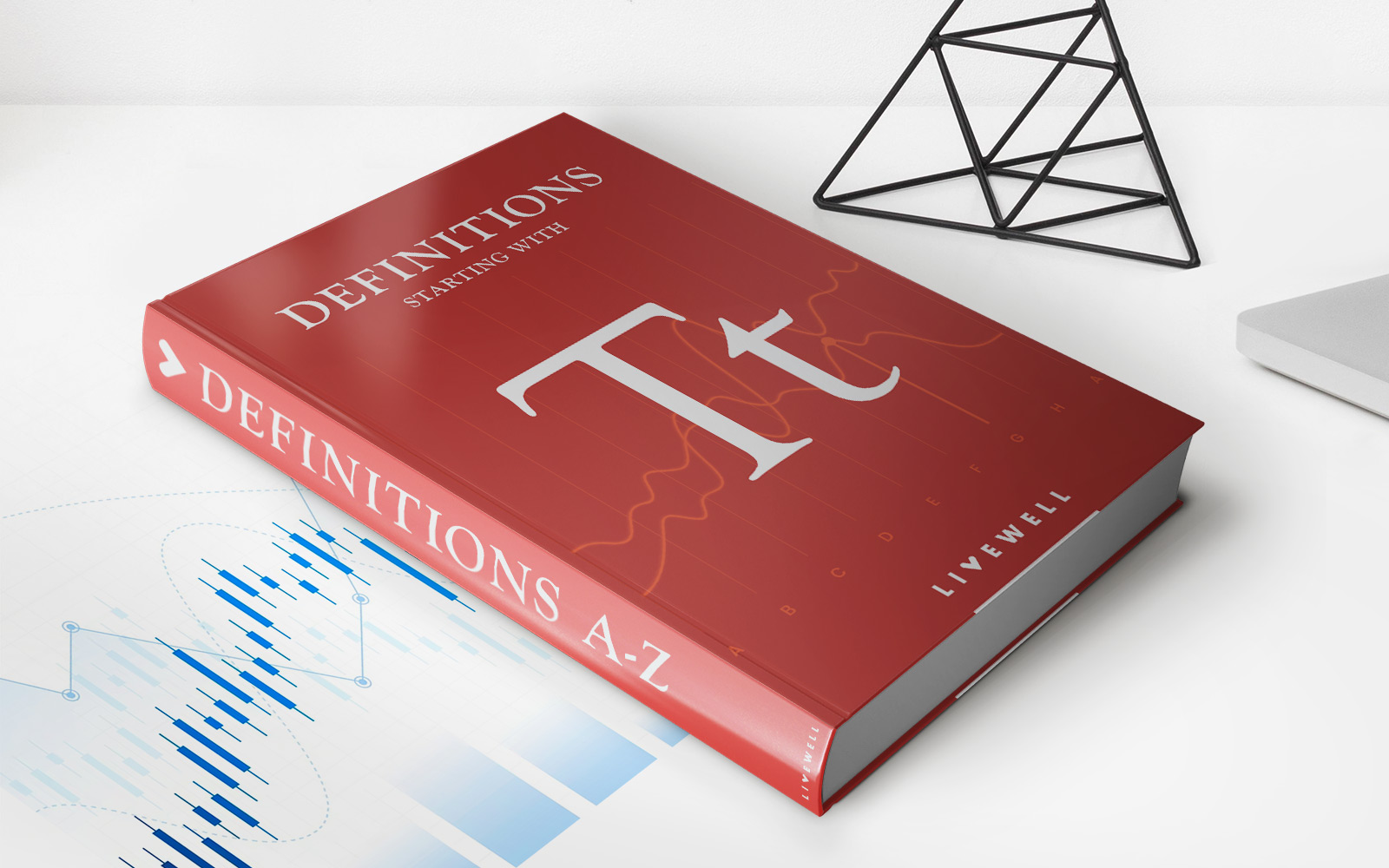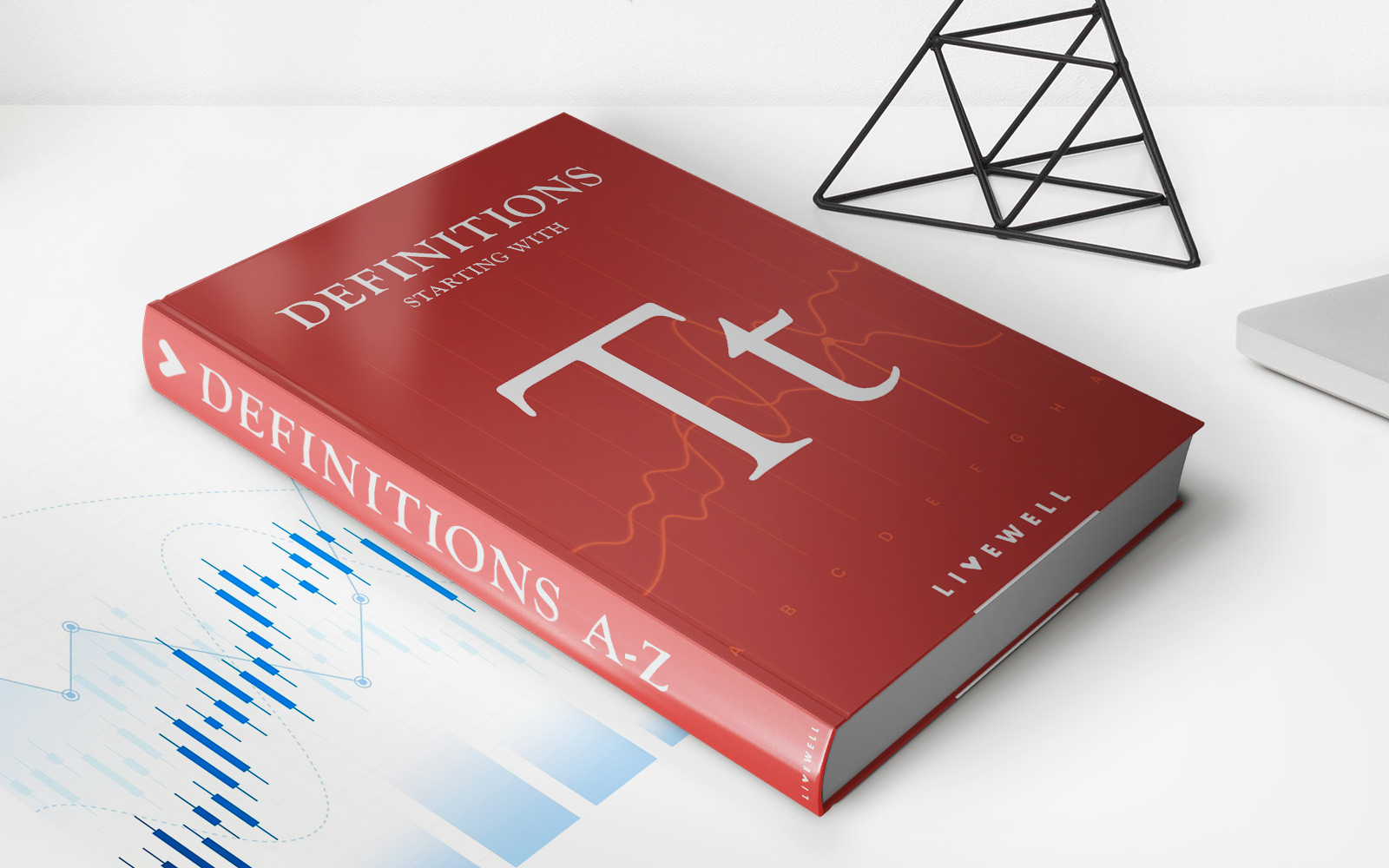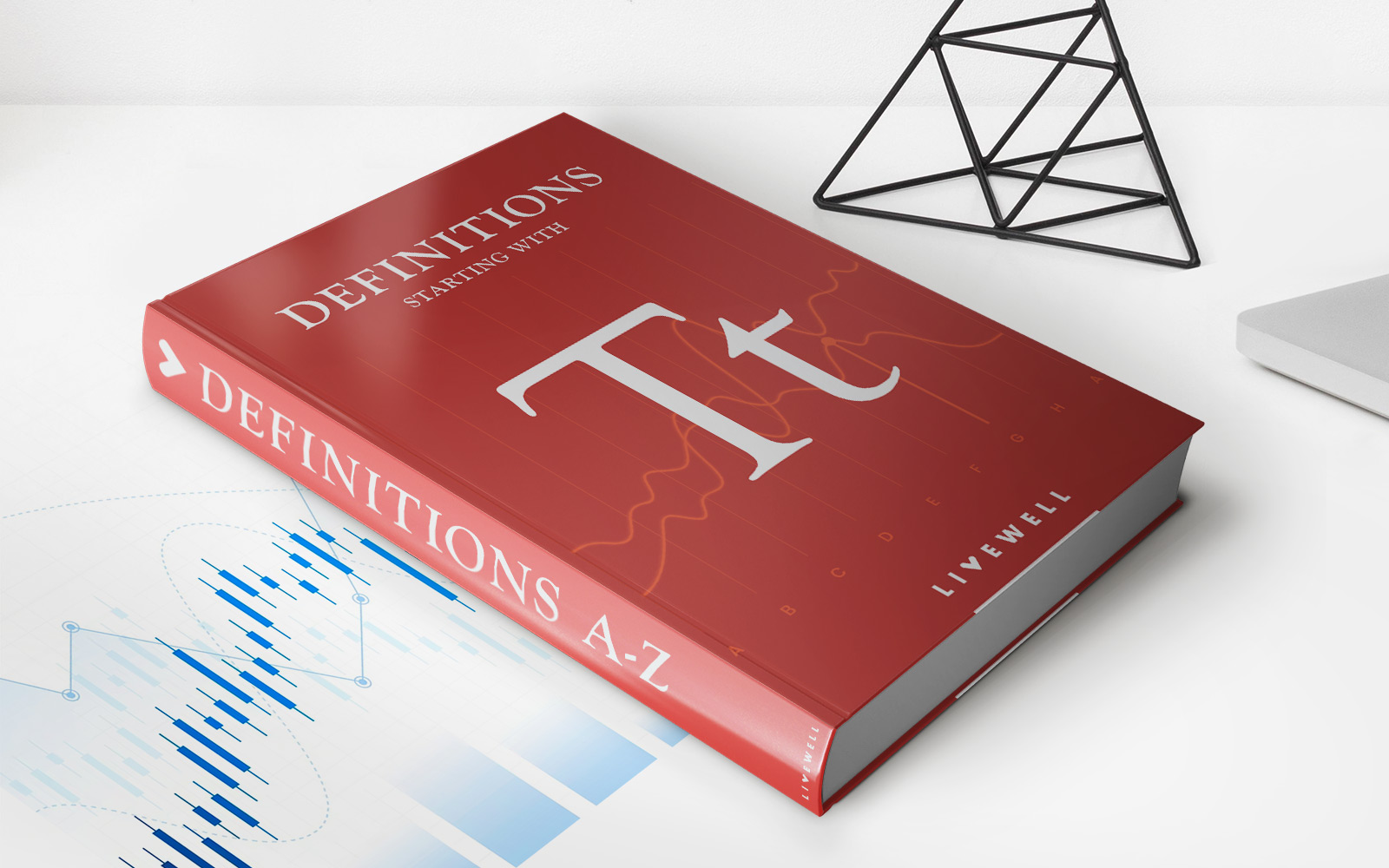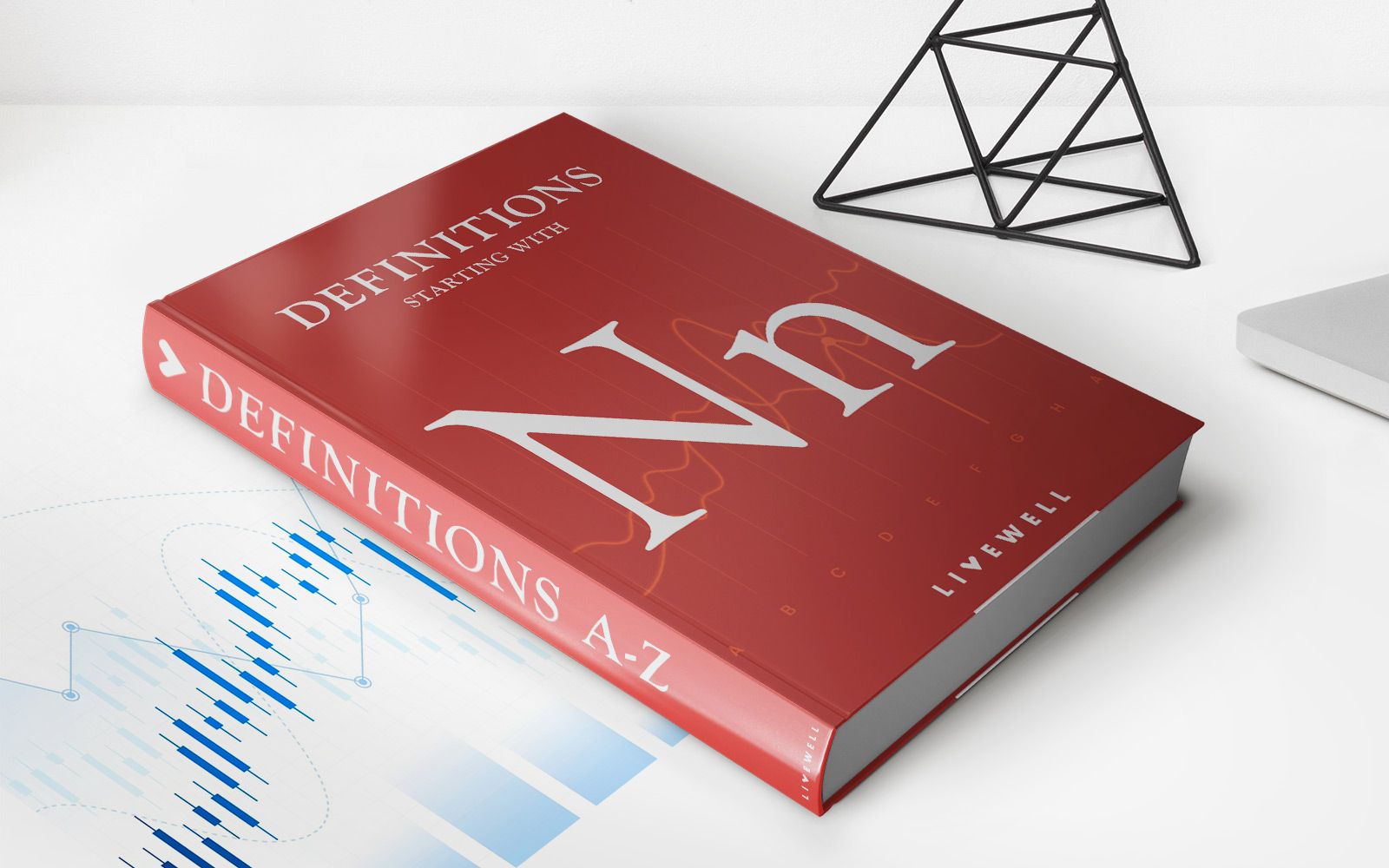

Finance
What Is Tier 1 Plus Credit
Modified: February 21, 2024
Learn about Tier 1 Plus Credit, a finance option that offers excellent benefits to borrowers. Discover how this credit tier can enhance your financial opportunities.
(Many of the links in this article redirect to a specific reviewed product. Your purchase of these products through affiliate links helps to generate commission for LiveWell, at no extra cost. Learn more)
Table of Contents
Introduction
In the world of finance, credit plays a vital role in determining an individual’s purchasing power and financial stability. Having good credit opens doors to better loan options, lower interest rates, and enhanced financial opportunities. While many people are familiar with the concept of credit scores, there is a lesser-known category called “Tier 1 Plus Credit” that offers even greater benefits.
Tier 1 Plus Credit refers to the top tier of credit ratings, representing the highest level of creditworthiness. It is a designation given to individuals who have exceptional credit profiles and meet specific criteria set by lenders and financial institutions. Those who achieve Tier 1 Plus Credit status can enjoy unparalleled advantages, including access to the best loan terms and exclusive financial perks.
While the requirements for Tier 1 Plus Credit may vary among lenders, it generally involves a combination of factors such as a high credit score, a lengthy credit history, and a demonstrated ability to manage credit responsibly. Individuals who fall into this category are viewed as exceptionally low-risk borrowers and are rewarded accordingly.
In this article, we will delve into the qualifications for Tier 1 Plus Credit, the benefits it offers, the potential drawbacks, and tips on how to improve your credit to reach this prestigious status. Whether you are just starting your credit journey or looking to elevate your existing credit profile, understanding Tier 1 Plus Credit can help you make informed decisions and achieve your financial goals.
Definition of Tier 1 Plus Credit
Tier 1 Plus Credit is a designation that signifies the highest level of creditworthiness. It is a classification used by lenders and financial institutions to identify individuals with exceptional credit profiles. Holding Tier 1 Plus Credit status demonstrates a strong financial history, responsible credit management, and a low risk of defaulting on loan obligations.
The criteria for Tier 1 Plus Credit may vary among lenders, but it typically includes a combination of factors such as a high credit score, a lengthy and positive credit history, a low debt-to-income ratio, and a clean record with regards to late payments or delinquencies. Additionally, lenders may also consider factors such as income stability, employment history, and a diversified credit mix when assessing Tier 1 Plus Credit eligibility.
Individuals with Tier 1 Plus Credit are considered highly desirable borrowers because of their demonstrated ability to manage credit responsibly and their historically low default rates. Their credit profiles reflect a strong financial foundation, which opens up a world of opportunities when it comes to obtaining loans, mortgages, credit cards, and other financial products.
It is important to note that Tier 1 Plus Credit is not a universally recognized term used by all lenders. Financial institutions may use different terminology or have their own proprietary credit rating systems. However, Tier 1 Plus Credit serves as a useful benchmark to understand the highest level of creditworthiness and the advantages that come with it.
By striving for Tier 1 Plus Credit, individuals can position themselves as low-risk borrowers and gain access to the most favorable loan terms, including lower interest rates, higher credit limits, and more flexible repayment options. This designation can also open doors to exclusive financial perks, such as premium rewards credit cards, priority customer service, and preferential treatment in various financial transactions.
As we move forward in this article, we will explore the qualifications required to attain Tier 1 Plus Credit and the benefits it offers in more detail. Understanding the criteria and advantages can help individuals set goals and make informed financial decisions to improve their credit and achieve the prestigious Tier 1 Plus Credit status.
Qualifications for Tier 1 Plus Credit
Qualifying for Tier 1 Plus Credit requires meeting certain criteria that demonstrate exceptional creditworthiness. While the specific requirements may vary among lenders, here are some common qualifications to strive for:
- High Credit Score: One of the key factors considered for Tier 1 Plus Credit is a high credit score. Typically, a FICO score of 800 or above is required to be eligible for this top-tier designation. Lenders see individuals with such scores as highly reliable borrowers with a proven track record of responsible credit management.
- Lengthy Credit History: A long and positive credit history is an essential qualification for Tier 1 Plus Credit. Lenders prefer individuals who have demonstrated a consistent and responsible borrowing behavior over an extended period of time. Having a lengthy credit history shows that you have a track record of managing credit effectively.
- Low Debt-to-Income Ratio: Lenders assess a borrower’s debt-to-income ratio to measure their ability to handle additional debt responsibly. To qualify for Tier 1 Plus Credit, it is advisable to maintain a low debt-to-income ratio, ideally below 30%. This demonstrates to lenders that you have a healthy balance between your income and debt obligations.
- Excellent Payment History: Paying your bills on time and in full is crucial when aiming for Tier 1 Plus Credit. Lenders want to see a clean payment history without any late payments, delinquencies, or defaults. Consistently meeting your financial obligations showcases your reliability and commitment to responsible credit management.
- Diversified Credit Mix: It is important to have a diverse mix of credit accounts to demonstrate your ability to handle different types of credit responsibly. This can include a combination of credit cards, loans, mortgages, and other forms of credit. The presence of various credit accounts shows lenders that you can handle different financial obligations effectively.
- Stable Income and Employment: Lenders prefer borrowers who have a stable source of income and a solid employment history. A steady income stream and secure employment indicate that you are financially capable of meeting your credit obligations. Consistent employment stability and income growth can positively impact your eligibility for Tier 1 Plus Credit.
It’s important to note that meeting these qualifications does not guarantee Tier 1 Plus Credit, as each lender may have their own specific requirements. However, focusing on these key factors can significantly improve your chances of attaining this top-tier credit rating.
In the next section, we will explore the numerous benefits that come with Tier 1 Plus Credit and how it can positively impact your financial journey.
Benefits of Tier 1 Plus Credit
Tier 1 Plus Credit comes with a wide range of benefits that can significantly enhance your financial experience. Let’s explore some of the key advantages that individuals with this top-tier credit rating enjoy:
- Favorable Loan Terms: Holding Tier 1 Plus Credit status enables you to access the most favorable loan terms available. Lenders are more willing to offer lower interest rates, higher credit limits, and longer repayment periods to individuals with exceptional creditworthiness. This translates to significant savings over the life of a loan and more affordable monthly payments.
- Lower Interest Rates: With Tier 1 Plus Credit, you can qualify for loans and credit cards with the lowest interest rates. This means you’ll be paying less in interest charges over time, allowing you to save money and potentially pay off debt faster. Lower interest rates also make it easier to manage debt and maintain a healthy credit utilization ratio.
- Higher Credit Limits: Lenders are more likely to offer individuals with Tier 1 Plus Credit higher credit limits, giving them greater purchasing power. Having access to more credit can be beneficial for making significant purchases, handling emergencies, and taking advantage of opportunities that require a higher credit limit.
- Exclusive Financial Perks: Achieving Tier 1 Plus Credit status often comes with exclusive financial perks. This may include access to premium rewards credit cards with generous cashback programs, travel rewards, and other valuable benefits. Additionally, individuals with this designation may receive priority customer service, personalized assistance, and preferential treatment in various financial transactions.
- Improved Approval Odds: When applying for loans or credit, having Tier 1 Plus Credit significantly increases your chances of approval. Lenders see individuals with this top-tier credit rating as low-risk borrowers, making them more likely to extend credit. This can be advantageous when seeking larger loans, such as mortgages or business financing.
- Credit Card Rewards: Many credit card providers offer exclusive rewards programs to individuals with exceptional credit. With Tier 1 Plus Credit, you can qualify for the best rewards credit cards, earning cashback, points, or miles on your purchases. These rewards can add up over time and be redeemed for travel, merchandise, or statement credits.
- Financial Flexibility: Tier 1 Plus Credit provides greater financial flexibility and peace of mind. You have more options and flexibility when it comes to managing your finances, including refinancing existing high-interest loans, consolidating debt, or negotiating better terms with lenders. This level of creditworthiness empowers you to be in control of your financial future.
Overall, achieving Tier 1 Plus Credit offers numerous advantages that can greatly enhance your financial well-being. From better loan terms and lower interest rates to exclusive perks and improved approval odds, having this prestigious credit status opens up a world of opportunities to make the most of your financial journey.
Drawbacks of Tier 1 Plus Credit
While Tier 1 Plus Credit offers numerous benefits, it is important to be aware of the potential drawbacks that come with this top-tier credit rating. Here are some considerations to keep in mind:
- High Standards: Qualifying for Tier 1 Plus Credit requires meeting strict standards and maintaining an excellent credit profile. This level of creditworthiness may not be achievable for everyone, especially those who are just starting to build their credit history or have faced past financial challenges. It requires a disciplined approach to credit management.
- Limited Access for Some: Tier 1 Plus Credit may not be accessible or relevant to everyone. Individuals with thin credit files or limited credit history may find it challenging to meet the criteria for this top-tier credit rating. It takes time and consistent responsible credit behavior to achieve and maintain Tier 1 Plus Credit status.
- Risk of Overleveraging: The availability of higher credit limits and favorable loan terms can tempt individuals to take on more debt than they can comfortably manage. It is important to exercise caution and only borrow what you can afford to repay. Failure to do so can lead to financial stress and potential default on loan obligations.
- Constant Credit Monitoring: Maintaining Tier 1 Plus Credit status requires ongoing credit monitoring and management. It is essential to regularly review your credit report, monitor for any errors or fraudulent activity, and ensure that your credit utilization ratio remains low. This level of vigilance ensures that you continue to meet the requirements for Tier 1 Plus Credit.
- Potential for Complacency: Achieving Tier 1 Plus Credit can lead to complacency in credit management. Individuals with this top-tier credit rating may feel a false sense of invincibility when it comes to borrowing and managing debts. It is important to always practice responsible credit behavior, regardless of your credit rating.
- Higher Standards for Future Credit: While Tier 1 Plus Credit opens doors to favorable loan terms, it also raises the expectations for future credit applications. If your credit rating were to drop, it may become more challenging to qualify for similar level credit offerings in the future. Therefore, it is important to maintain responsible credit behavior to sustain your creditworthiness.
It is crucial to consider both the benefits and drawbacks of Tier 1 Plus Credit when evaluating your financial goals and credit management strategies. Understanding these potential drawbacks allows you to make informed decisions and maintain a healthy credit approach that aligns with your overall financial well-being.
How to Improve Your Credit to Tier 1 Plus
If you aspire to achieve Tier 1 Plus Credit, there are several steps you can take to improve your creditworthiness and increase your chances of attaining this top-tier credit rating. Here are some strategies to consider:
- Monitor Your Credit: Regularly review your credit reports from the major credit bureaus – Experian, Equifax, and TransUnion. Ensure the information is accurate and dispute any errors or discrepancies promptly.
- Pay Bills on Time: Establish a track record of consistent, on-time payments. Late payments can have a negative impact on your credit score and eligibility for Tier 1 Plus Credit. Set up automatic payments or reminders to ensure timely bill payments.
- Reduce Debt: Work on paying down outstanding debts and keep credit card balances low. High credit utilization can negatively affect your credit score. Aim to keep balances below 30% of your credit limit to demonstrate responsible credit management.
- Diversify Your Credit Mix: Expand your credit portfolio by having a mix of different types of credit accounts. This can include credit cards, loans, and mortgages. Having a diversified credit mix shows lenders that you can handle various types of credit responsibly.
- Keep Old Accounts Open: Closing old credit accounts can reduce the length of your credit history. Maintain your oldest accounts, even if they have a zero balance, to demonstrate a longer credit history and improve your creditworthiness.
- Avoid Opening Too Many New Accounts: While it’s important to have a diverse credit mix, avoid opening too many new accounts within a short period of time. Each new credit application can result in a hard inquiry on your credit report, which can temporarily lower your score.
- Manage Credit Inquiries: Be cautious of excessive credit inquiries. Multiple credit inquiries within a short period of time can signal a higher risk to lenders. Only apply for credit when necessary to minimize the impact on your credit score.
- Establish a Stable Financial History: Having a stable source of income and employment can positively impact your creditworthiness. Demonstrating a consistent income stream and secure employment history can give lenders confidence in your ability to meet financial obligations.
- Work with a Credit Professional: If you’re struggling to improve your credit score, consider seeking guidance from a credit counseling agency or a reputable credit repair company. They can provide personalized advice and strategies to help you boost your creditworthiness.
Improving your credit score takes time and patience. Focus on these strategies to gradually build a strong credit profile and increase your eligibility for Tier 1 Plus Credit. Remember, responsible credit management habits will benefit you in the long run, not just for attaining top-tier credit status but also for your overall financial well-being.
Conclusion
Tier 1 Plus Credit represents the pinnacle of creditworthiness, offering individuals unparalleled benefits and opportunities. Achieving this top-tier credit rating requires a combination of factors, including a high credit score, a lengthy credit history, responsible credit management, and a low debt-to-income ratio.
While the qualifications for Tier 1 Plus Credit may be challenging to attain, the rewards are well worth the effort. Individuals with this prestigious credit status can enjoy favorable loan terms, lower interest rates, higher credit limits, and exclusive financial perks. They also have improved approval odds and greater financial flexibility.
It is important to understand that maintaining Tier 1 Plus Credit requires ongoing credit monitoring and responsible credit behavior. Regularly monitoring your credit reports, making timely payments, reducing debt, and diversifying your credit mix are key steps in achieving and sustaining this top-tier credit rating.
However, it’s important to note that Tier 1 Plus Credit is not the only measure of financial success. While it offers numerous advantages, focus on building a healthy overall financial profile that includes a strong emergency fund, savings, and a well-planned budget.
By applying the strategies outlined in this article and staying committed to responsible credit management, you can improve your creditworthiness and increase your chances of qualifying for Tier 1 Plus Credit. Remember that building good credit takes time and patience, but the benefits of achieving top-tier credit status can positively impact your financial future.
Empower yourself with knowledge and take proactive steps to manage your credit effectively. Strive for Tier 1 Plus Credit, not only for the advantages it offers but also as a reflection of your financial discipline and commitment to a strong and secure financial future.














